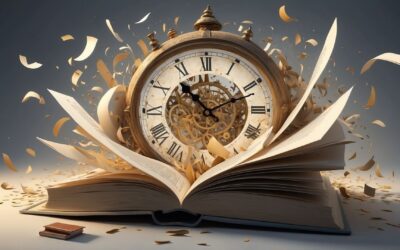Ever read a book and felt like the storyteller was pulling the wool over your eyes? Welcome to the world of unreliable narrators, the tricksters of literature who make reading a thrilling roller coaster of guesswork and revelation.
In the realm of storytelling, an unreliable narrator is like that friend who always embellishes stories. You love listening to them, but you take everything they say with a grain of salt. They make you question, doubt, and think harder. This is what unreliable narrators do: they play with your trust, challenge your perceptions, and often leave you questioning what’s real and what’s not.
Take, for example, the classic “The Catcher in the Rye.” Holden Caulfield, the protagonist, is as unreliable as they come. He’s a teenage rebel who views the world through a lens of cynicism and disillusionment. He’s a character you empathize with, yet you can’t shake off the feeling that there’s more to his story than he’s letting on. His selective memory and subjective experiences paint a picture that’s compelling, yet incomplete.
Unreliable narrators aren’t just confined to fiction. Ever watched a crime documentary where the narrator’s account of events keeps changing? It’s frustrating and fascinating in equal measure. It turns the act of reading or watching into a detective game, where you’re constantly sifting through clues to find the truth.
But why do writers love using unreliable narrators? Because it makes for a gripping, thought-provoking story. It’s a way to explore the complexities of human nature and the subjectivity of truth. In real life, people are complex, and their perspectives are colored by their experiences, biases, and emotions. Unreliable narrators reflect this reality, reminding us that everyone’s version of truth is different.
They also serve as a mirror to our own biases. Ever read a story with an unreliable narrator and found yourself siding with them, only to realize later that you were misled? That’s the power of these characters – they reveal how easily we can be swayed and how eager we are to believe what aligns with our own views.
On a deeper level, unreliable narrators invite us to question the nature of storytelling itself. What is a story, if not a version of events filtered through someone’s perspective? Every storyteller, whether in a book or in real life, is, in a way, unreliable. They choose what details to include, what to emphasize, and what to downplay.
In literature, unreliable narrators are a reminder of the artistry involved in crafting a story. They show us that a story isn’t just about plot or characters; it’s about perspective, perception, and the blurry line between fact and fiction. They turn readers into active participants, investigators trying to piece together the puzzle of the narrative.
So, next time you pick up a book and start doubting the narrator’s credibility, embrace the uncertainty. Dive into the labyrinth of their narrative, question everything, and enjoy the thrill of not knowing what to believe. Unreliable narrators aren’t just characters in a story; they’re invitations to engage with literature in a more profound, interactive way. They remind us that literature is not just about reading a story – it’s about experiencing it, questioning it, and ultimately, loving the complexity and richness it brings to our lives.










0 Comments